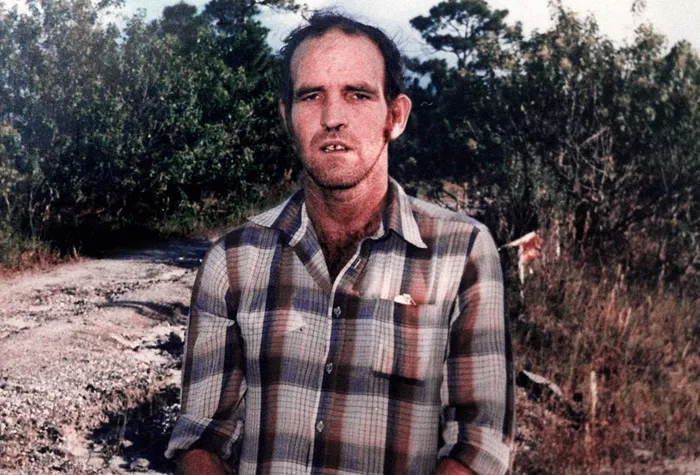Otis Toole: The Life, Crimes, and Dark Legacy
Otis Toole remains one of the most notorious names in American criminal history. Known for his violent crimes, troubled background, and connection with serial killer Henry Lee Lucas, Toole’s life has been the subject of documentaries, books, and endless debates. While some of his confessions remain disputed, his actions and reputation left a permanent mark on the public consciousness. This article explores the full story of Otis Toole, from his early years to his disturbing crimes, his time in prison, and the mystery surrounding his legacy.
Who Was Otis Toole?
Early Life
Otis Elwood Toole was born on March 5, 1947, in Jacksonville, Florida. He grew up in a deeply troubled household. Reports describe abuse, neglect, and confusion about his identity, which played a significant role in shaping his later behavior.
Struggles in Childhood
From a young age, Toole exhibited troubling signs. He struggled academically, was bullied, and reportedly suffered from epilepsy and low IQ. He also experienced confusion about his sexuality, which added to his isolation.
The Early Criminal Path of Otis Toole
First Encounters with the Law
As a teenager, Toole began committing petty crimes such as theft and arson. Fire fascinated him—arson would later become one of his criminal trademarks.
Escalation of Violence
Over time, his criminal acts grew more violent. Authorities later connected him to multiple murders, though not all confessions could be verified.
Otis Toole and Henry Lee Lucas
Meeting Lucas
Otis Toole met fellow drifter Henry Lee Lucas in the mid-1970s. The two formed a close bond, which some described as both romantic and criminal.
A Deadly Partnership
Together, they roamed across the United States, confessing to hundreds of murders. While many claims were exaggerated or false, investigators confirmed that both men were responsible for multiple killings.
The Confession Controversy
Their confessions created confusion for law enforcement. At one point, Lucas and Toole claimed responsibility for crimes they could not have committed. This damaged their credibility but also highlighted flaws in the justice system’s investigation process.
The Murders Attributed to Otis Toole
Confirmed Crimes
While exact numbers are debated, Toole was convicted of six murders. Some of the cases involved gruesome details that horrified the public.
The Adam Walsh Case
Perhaps the most infamous connection was Toole’s alleged involvement in the 1981 abduction and murder of 6-year-old Adam Walsh. For years, he was the prime suspect, but inconsistencies in his confession and lack of evidence left the case unresolved until 2008, when police officially named Toole as the killer.
Personality and Psychological Profile of Otis Toole
Mental Health Struggles

Experts believe Toole suffered from multiple mental illnesses, including antisocial personality disorder. His low IQ, history of abuse, and seizures added layers of complexity to his case.
Obsession with Fire
Toole was known as a pyromaniac. He admitted that setting fires gave him a sense of excitement and power.
Otis Toole in Prison
Arrest and Convictions
Otis Toole was arrested in 1983 for arson and later convicted of multiple murders. He received several life sentences.
Life Behind Bars
In prison, Toole continued to confess to crimes, though investigators could not verify many of his claims. His statements often changed, frustrating law enforcement and families seeking closure.
Death in Custody
Otis Toole died in prison on September 15, 1996, from liver failure at the age of 49. His death ended decades of mystery but left many questions unanswered.
Media Coverage of Otis Toole
Documentaries and Books
True crime documentaries and books often revisit his story, focusing on his disturbing partnership with Henry Lee Lucas and his suspected role in the Adam Walsh case.
Public Fascination
The sheer brutality of his actions and the uncertainty of his confessions make Toole a lasting figure in true crime history.
Legacy of Otis Toole
Impact on Criminal Justice
The case of Otis Toole revealed flaws in police interrogation methods, as his unreliable confessions led to confusion and wrongful associations with certain cases.
Influence on Pop Culture
From documentaries to dramatizations, Toole’s name continues to appear in popular culture, symbolizing the darkest corners of criminal behavior.
Lessons from the Case of Otis Toole
The Importance of Evidence
Toole’s story highlights why confessions alone are not enough. Solid forensic evidence is essential in criminal investigations.
The Role of Mental Health
His background underscores how untreated mental illness and childhood abuse can contribute to violent behavior.
Law Enforcement Challenges
The chaos created by false confessions reminds us of the difficulties police face when dealing with manipulative offenders.
Frequently Asked Questions About Otis Toole
How many murders did Otis Toole commit?
He was convicted of six murders, though he confessed to many more that remain unverified.
Was Otis Toole involved in the Adam Walsh case?
Yes, police officially named him as the killer in 2008, years after his death, though evidence was limited.
What was his relationship with Henry Lee Lucas?
They were close companions, both romantically and criminally, traveling across the U.S. together.
How did Otis Toole die?
He died in prison in 1996 from liver failure.
Conclusion: The Dark Legacy of Otis Toole
Otis Toole’s life was a tragic combination of abuse, mental illness, and unchecked violence. His crimes shocked America, and his partnership with Henry Lee Lucas only deepened the horror. While many of his confessions remain questionable, the damage he caused is undeniable. Toole’s story serves as a grim reminder of the importance of proper investigation, mental health care, and the devastating impact one individual can have on countless lives.






